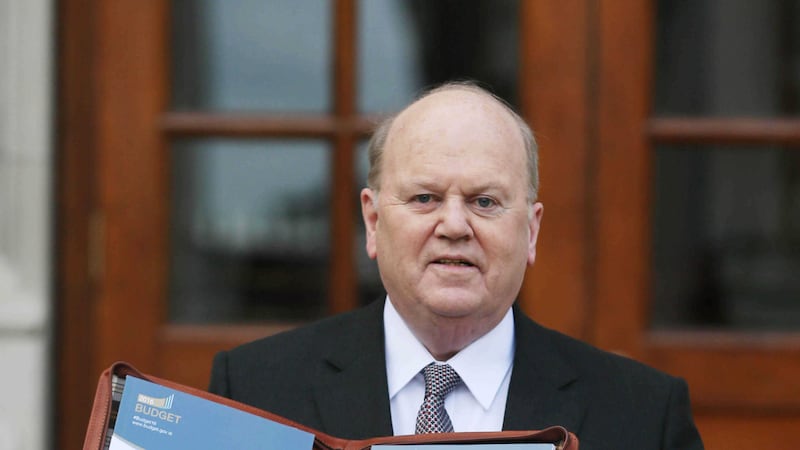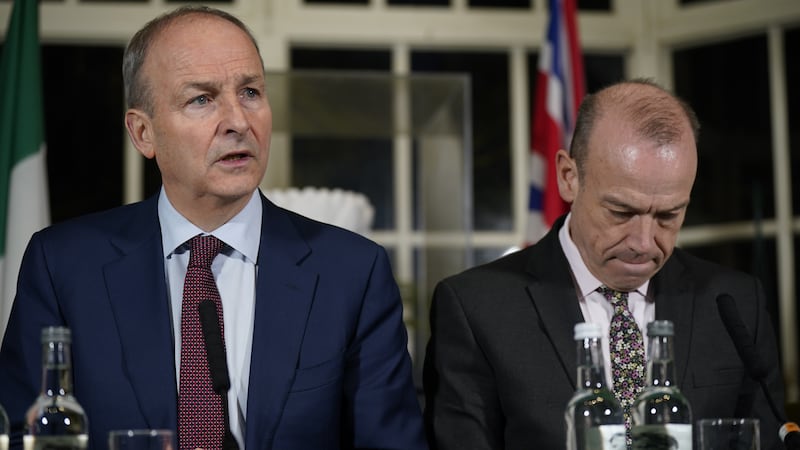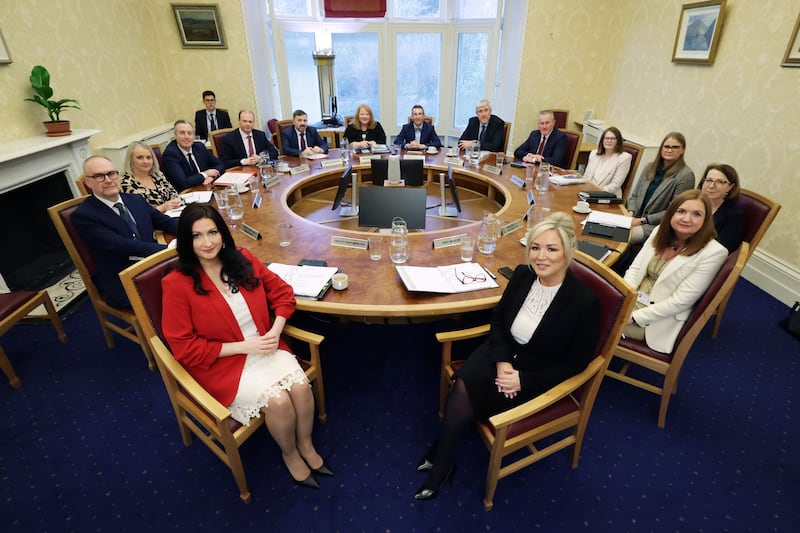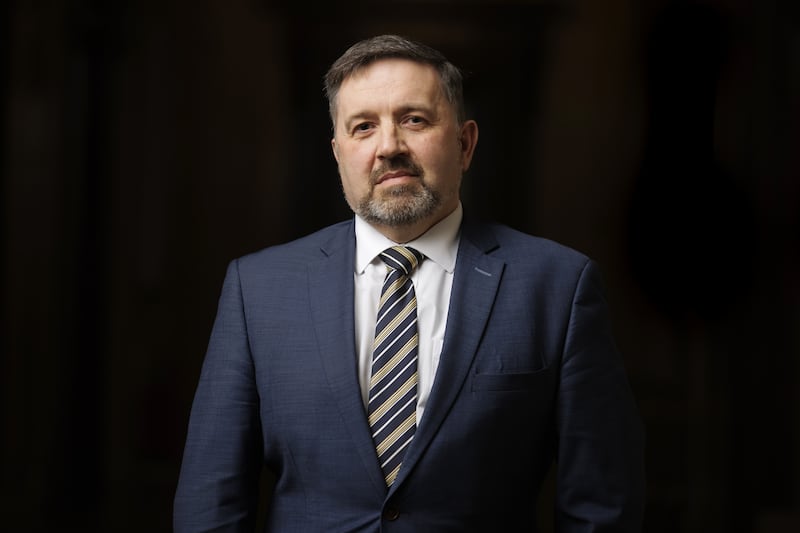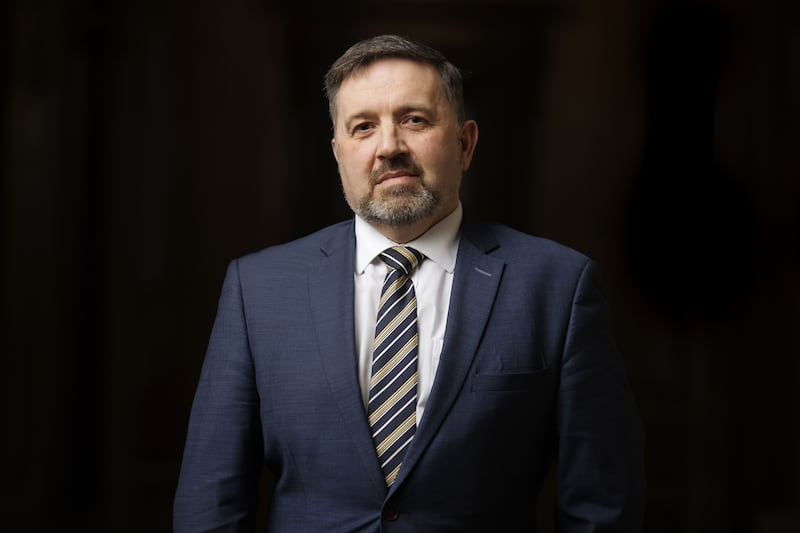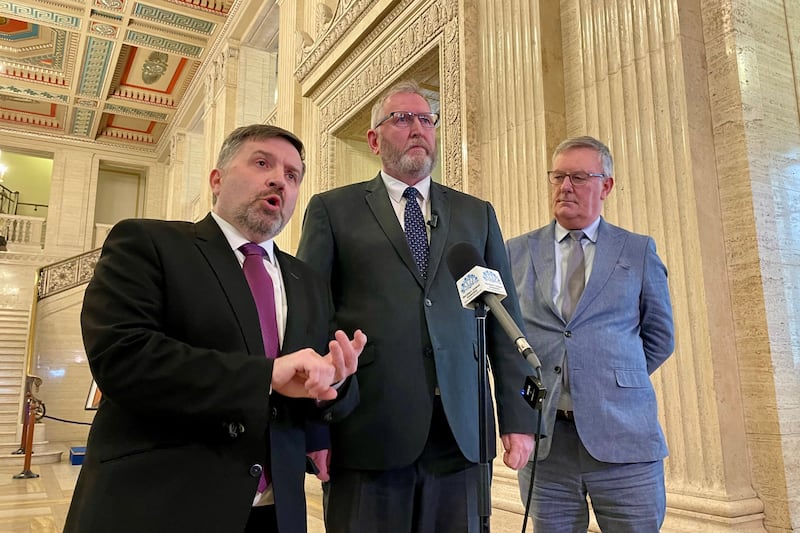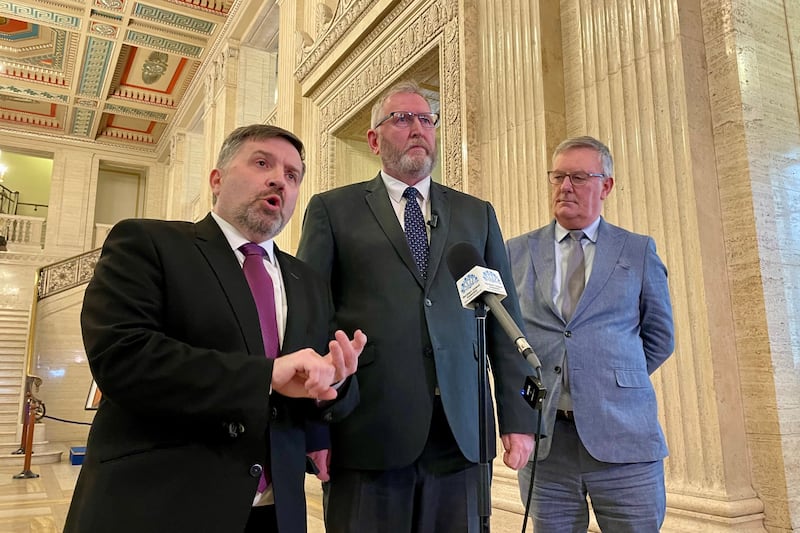THE SOUTH'S budget is to keep the country's economic recovery going, Finance Minister Michael Noonan has claimed.
Cuts to the deeply unpopular income tax levy known as the Universal Social Charge, more nurses and doctors, more affordable and quality childcare and an end to the unfair tax treatment of the self-employed are among the reforms being announced, the minister said.
"The priority of this budget is to keep the recovery going while providing relief and better services for the Irish people," Mr Noonan said.
Employment is being forecast to hit close to 1.97 million people by the end of this year and the Department of Finance's estimates also predict that 48,000 jobs will be created next year bringing unemployment down to below eight per cent.
Mr Noonan said Budget 2016 would bring the south's debt levels to just under ninety three per cent of GDP - the Eurozone average.
The only tax rise in the Budget is a 50 cent hike in the price of a packet of 20 cigarettes - up to around €10.50 for a packet.
"This measure will raise €61.4 million in a full year and the additional revenue will enable the funding of new initiatives in the health sector to support young families with children," said Mr Noonan.
"This is the only tax increase in the Budget."
"This Government has consigned to the history books the days of boom and bust, and the attitude of 'if I have it, I'll spend it,"' Mr Noonan said.
On specific tax reforms, the coalition Government confirmed expected changes to the Universal Social Charge (USC).
From next January the threshold for when workers start paying the crippling levy rises from €12,012 to €13,000 (£8,8950 to £9,636), taking about 42,500 workers out of the net.
The Government estimated that more than 700,000 workers will not be suffering under the USC next year.
The USC rates change, as expected, from 1.5% to 1% on the first €12,012; from 3.5% to three per cent for the next bracket from €12,012 to an increased level of €18,668 (£13,900) and from seven per cent to 5.5% for higher earners on income in excess of €18,668 up to €70,044 (£52,300).
Mr Noonan said anyone earning less than €70,000 will be paying a marginal rate of tax less than fifty per cent for the first time since the 2009 emergency budget.
The Finance Minister also signalled rising property values in recent years would not mean rising property taxes.
Revaluations of homes for the Local Property Tax (LPT) is to be postponed from 2016 to 2019.
"The postponement of the revaluation date means that homeowners will not be faced with significant increases in their LPT in 2017 as a result of increased property values," he said.
"Legislation to implement the postponement will be brought forward in due course."
To ease the tax burden on inheritances Capital Acquisitions Tax will be cut to reflect the recovery in property prices.
The tax-free thresholds allowing parents to leave assets to children will go up from €225,000-€280,000 (£166,786-£207,000).
Elsewhere, workers putting money into pensions were given a little relief with the pension levy on savings pots being abolished next year.
Other tax credits have been improved, with low paid workers set to see a "significant" improvement in their pay packets.
A levy on the banks which was introduced after they were rescued by taxpayers is to be retained until 2012 and is thought to be worth about €750 million (£555 million).
Mr Noonan returned to capital gains tax, which he said would be reformed to a twenty per cent rate on the disposal of a business worth up to €1,000,000 (£741,000).
"The relief will represent a simplified and upfront benefit for individuals who propose to sell their business," he said.
Mr Noonan said he was halving fees for the use of debit cards in Ireland to save retailers €36 million (£26.6 million) a year.
The move will come into effect on December 9 and should also save consumers money.
"It is important that this saving is passed on to the consumer in terms of lower prices, and this new fee regime will be monitored closely to ensure this happens," he said.
In an attempt to encourage more cashless transactions, Mr Noonan is bringing a new 12 cent charge on ATM transactions from the new year to replace a stamp duty on cards.
"There will be no charge for debit card transactions," he said.
"No consumer will be lose out as a result of this change as the stamp duty will be capped at the existing levels of €2.50 (£1.85) or €5 (£3.70), depending on card type."
The tourism and hospitality sector benefits from the retention of the reduced nine per cent VAT rate.
To encourage consumers to go cash free, the limit for contactless payment cards is being raised from €15 to €30 (£11 to £22) at the end of the month.
But stamp duty on debit and ATM cards is being removed and replaced with a 12 cent charge on every ATM transaction, while there will be no charge for debit card transactions.
Hauliers and commercial vehicle users also got some respite with a significant cut to motor tax to bring it closer to the rate in the North and the UK.
Five new tax rates for commercial motors will be put in place from January, ranging from €92 to €900 (£68 to £667), benefiting more than 28,500 companies and drivers.
Public Spending Minister Brendan Howlin declared "a remarkable turnaround" in Ireland's fortunes, which he said was a tribute to the resilience of the Irish people.
But he was heckled from the Opposition benches when he dismissed claims of increased inequality under the Fine Gael/Labour coalition.
"It has become popular to say that under this Government, inequality has risen. This is simply not true," he said to jeers from across the chamber.
"Our adjustment has been a difficult one, but a fair one.
"Those with the most have given the most."
The cut in motor tax means the maximum rate will be €900 (£670) a year down to about €4,200 (£3,130).
Film tax credits are being changed with the cap on spending to be increased to €70 million (£52 million) to encourage the opening of more studio space to entice high quality productions.
Mr Noonan also revealed new tax rates to foster innovation and R&D.
The so-called knowledge development box has been confirmed - billed as the first one of its kind in the world which complies with rules set down by the OECD - with income that qualifies for the classification subject to a reduced corporation tax rate of 6.25%.
Mr Howlin confirmed new measures will include free childcare for children from three years of age until they are five and a half, or until they start primary school.
An extra €15 million (£11.2 million) has been earmarked for the scheme specifically for children with disabilities.
Child Benefit payments are to go up by €5 euro from next year, to €140 (£104) per month for every child.
Mr Howlin also announced imminent legislation for statutory paternity leave of two weeks, to take effect from next September.
Other modest giveaways include a three euro increase to the old age pension; fuel allowance going up by €2.50 to €22.50 (£16.80); and the restoration of the respite care grant to €1,700 (£1,270) for people looking after relatives.
Some 2,260 new teachers are to be employed, Mr Howlin said.
The Christmas bonus for people on social welfare will be increased to seventy five per cent of the payments.
Mr Howlin said free GP care - currently only available those under six and over 70 - would be extended to all children under 12 years.
But the proposal will be "subject to successful negotiation with doctors representatives", he added.
The plan will be funded by a €13.2 billion (£9.8 billion) allocation for health services next year.
The Garda will get funding to recruit and train an extra 600 recruits, Mr Howlin said.
Some €50 million is being set aside to mark the centenary of the 1916 Rising.
Concluding the coalition's fifth Budget, Mr Howlin claimed the Government had brought the country "back from the brink".
"Our recovery, though not yet complete, is not only a justification of our policies, but a condemnation of the easy alternatives proffered by some," he said.
"Today, we reap the benefits of the hard work and resilience of the Irish people, as we set our course for a better Ireland."
